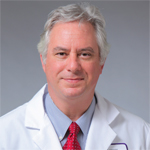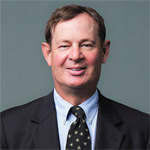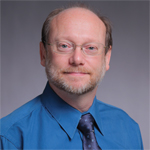
Gregg Silverman, MD, Professor, Department of Medicine and Department of Pathology
From Dr. Weissmann’s time forward, many who trained with the Division went on to join the faculty and become leaders. H. Michael Belmont, MD, professor, Department of Medicine, associate director of clinical affairs in the Division of Rheumatology and medical director of the Hospital for Joint Diseases arrived at NYU Langone in 1983 for a two-year fellowship. “When I met Dr. Weissmann,” Dr. Belmont recalls, “I was very impressed with his general world knowledge, his extraordinary familiarity with rheumatic disease, and brilliance when it came to the inflammatory response.”
In addition, the opportunity to practice at such hospitals as [then-called] University Hospital and Bellevue, “where diseases are often present either in their most unvarnished fashion or at their most intense,” all factored into Dr. Belmont’s choice. During his second and research fellowship year, he served as chief fellow and has remained in the division since that time. His early studies on complement activation and clumping of neutrophils in collaboration with Dr. Abramson would prove to be highly relevant to the pathogenesis of lupus.

H. Michael Belmont, MD, Professor, Department of Medicine
As a resident at Albert Einstein College of Medicine, Michael Pillinger, MD, was “always aware” of the Division’s reputation, not only for its breadth of scientific innovation but its tradition of literary scholarship (Pulitzer Prize winner Lewis Thomas’ The Lives of a Cell as a case in point). Now, as director of the Rheumatology Fellowship Program, Dr. Pillinger employs the principles he learned as a fellow in the Division.
“I learned not to talk about disease without talking about the latest research, especially the pathophysiology,” Dr. Pillinger recalls. “There’s reasoning by evidence-based medicine, but in rheumatology, we have always reasoned by pathophysiology. When my fellows examine a joint, I really want them to imagine the cellular processes that are happening between their fingers.” Mentoring fellows and involving them in his research (currently focused on comorbidities and gout) says Dr. Pillinger, gives him tremendous satisfaction. He fulfills additional roles as professor, Department of Medicine and Department of Biochemistry and Molecular Pharmacology and director of rheumatology at the Manhattan VA.

Michael Pillinger, MD,
Director of the Rheumatology Fellowship Program
Conferences are a key feature of the fellowship program. In a typical week, says Dr. Pillinger, there will be at least one a day. Faculty members come and go, circulating through the various hospitals. The cross-fertilization regarding research is a natural result of traversing the “super block” of affiliated NYU Langone hospitals in Manhattan.


